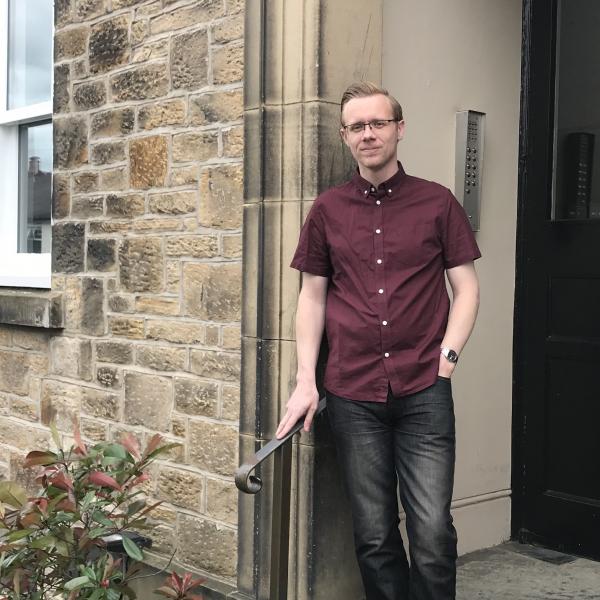Dr David Vessey
BA, MA, PhD
School of History, Philosophy and Digital Humanities
University Teacher in Modern History


+44 114 222 2602
Full contact details
School of History, Philosophy and Digital Humanities
Jessop West
1 Upper Hanover Street
Sheffield
S3 7RA
- Profile
-
I have worked at Sheffield since 2006, initially whilst studying for my Ph.D. after also completing my B.A. and M.A. at the university.
I have previously taught at Leeds Metropolitan University, and additionally held Research Assistant posts working on projects investigating representations of entrepreneurship in British culture and the popular press.
My Ph.D. titled ‘The Downfall of the Liberal Party and the Rise of Labour: Sheffield Politics, 1903-1924’ contributed to the wider historical debate on both parties by demonstrating that Sheffield’s experience validates interpretations of Liberal decline that pre-date the First World War.
Most of my research is positioned at the intersections between the media and political engagement in modern Britain. I have worked on representations of the Women’s Social and Political Union in the newspapers of Edwardian Britain, and I'm currently investigating how the media - and Britons themselves - represented the Soviet Union in the mid twentieth-century.
- Research interests
-
My research uses the media (particularly newspapers and periodicals) to investigate representations of modern Britain across social trends and political engagement.
I am currently researching British perceptions of the Soviet Union in the Stalin era. Various articles can be found in the 'Publications' section, and I'm also working on a book provisionally titled: Looking East: Britons and the Soviet Union.
- Publications
-
Journal articles
- ‘People want newspapers far more than weekly collections of articles’: The Sheffield Guardian, the Labour Party and the left-wing press. Labour History Review, 80(3), 249-272.


- Attercliffe, Sheffield: The Rise of Labour Examined in Two By-Elections, 1894–1909. Yorkshire Archaeological Journal, 85(1), 194-212.


- Speaking Truth to a Foreign Power: Anti-Bolshevism and Truth in the Early Cold War, 1945–53. Journal of Contemporary History.


- First-hand Accounts? Walter Duranty, William Henry Chamberlin and Eugene Lyons as Moscow Correspondents in the 1930s. Journalism Studies, 1-17.


- Anti-Bolshevism and the periodical press in interwar Britain: the case of the Saturday Review, 1933–6. Historical Research.


- Words as well as Deeds: The Popular Press and Suffragette Hunger Strikes in Edwardian Britain. Twentieth Century British History.


- Votes for Women and Public Discourse: Elite Newspapers, Correspondence Columns and Informed Debate in Edwardian Britain. Media History, 1-15.


Book reviews
- ‘Miserable Conflict and Confusion’: The Irish Question and the British National Press, 1916-22. By Erin Kate Scheopner. Twentieth Century British History.


- ‘People want newspapers far more than weekly collections of articles’: The Sheffield Guardian, the Labour Party and the left-wing press. Labour History Review, 80(3), 249-272.
- Research group
-
- Current Students
-
Second Supervisor
- Teaching interests
-
Undergraduate
- HST112 - Paths from Antiquity to Modernity
- HST120 - History Worshop
- HST21015 - Uses of History
- HST2101 - Looking East: British Perceptions of the Soviet Union from the Holodomor to the Early Cold War
Postgraduate
- HST61025 - Approaches and Methods in Media History
- Professional activities and memberships
-
Senior Fellow of the Higher Education Academy
